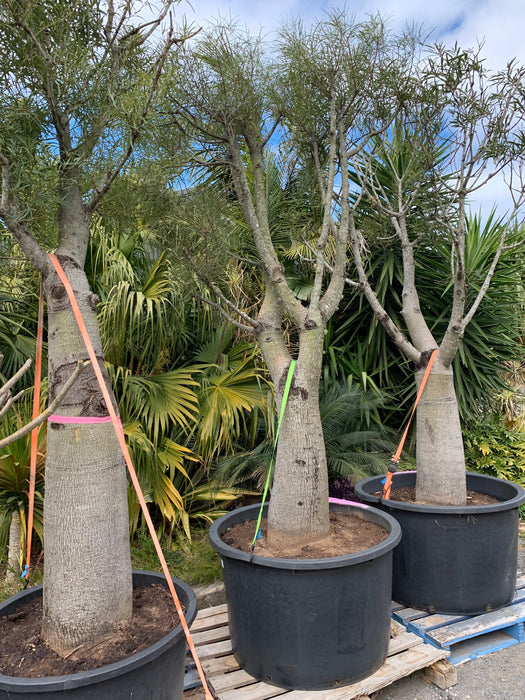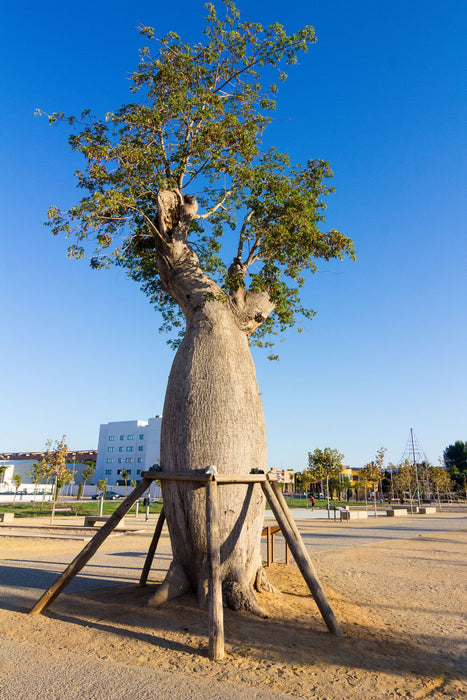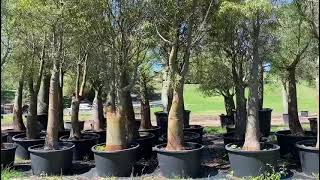
Adansonia Digitata
Adansonia digitata plants, commonly known as Baobab trees, are large, iconic, and unique tree species native to various regions in Africa. Here is a description of the Adansonia digitata plant:
-
Size and Shape: Baobab trees are characterized by their massive size and distinctive shape. They have an extremely thick and gnarled trunk that can reach impressive dimensions. The trunk is often bottle-shaped, bulging in the middle and tapering towards the top. The trees can grow up to 98 feet (30 meters) tall or even taller in some cases.
-
Bark: The bark of the Baobab tree is smooth and grayish-brown in color. It may become wrinkled and fissured with age, adding to the tree's unique appearance.
-
Leaves: Baobab trees produce large, palmate leaves during the rainy season. The leaves are composed of several leaflets radiating from a central point, giving them a hand-like appearance. However, during the dry season, the tree typically sheds its leaves, and it may appear leafless for extended periods.
-
Flowers: The Baobab tree produces large and showy white flowers with a creamy yellow center. The flowers are pendulous and have a pleasant fragrance. They usually bloom during the late afternoon and remain open throughout the night, attracting nocturnal pollinators like bats and moths.
-
Fruit: The fruit of the Baobab tree is one of its most distinctive features. The fruit is large, oblong, and woody, resembling a large gourd or coconut. It has a hard, outer shell that protects the pulp and seeds inside. The pulp is whitish and powdery, containing numerous seeds. The pulp is edible and has a tangy flavor. It is highly nutritious, rich in vitamin C, antioxidants, and minerals.








